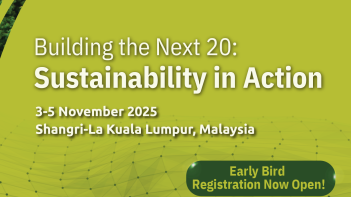Industry leaders discuss climate impacts and traceability, awaiting EUDR guidelines before the summer 2024.
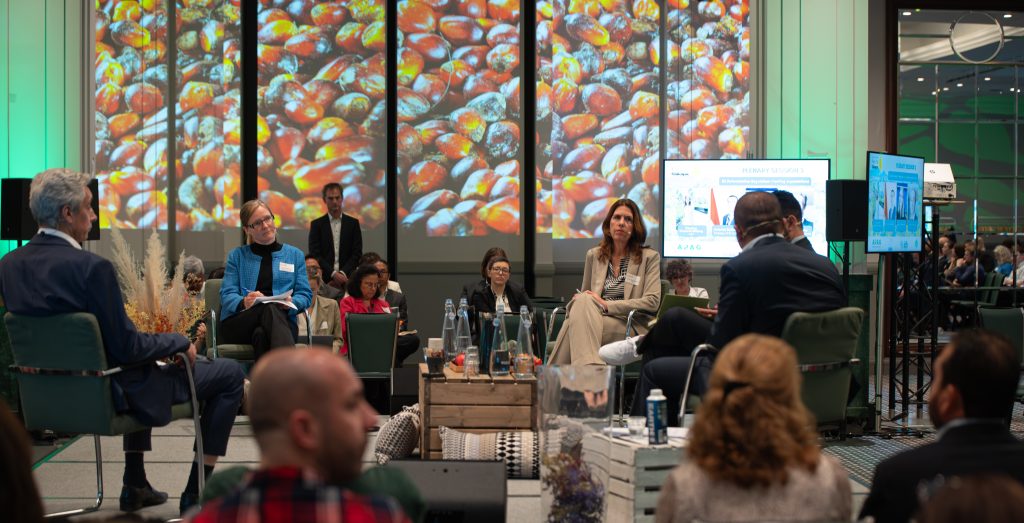
Brussels, Belgium 23 May 2024: The Sustainable Palm Oil Dialogue (SPOD) 2024 Europe successfully convened stakeholders committed to advancing sustainability in the palm oil sector, including representatives from the European Commission and the Indonesian Government. Organised by APAG Oleochemicals Europe, the EU Vegetable Oil and Proteinmeal Industry (FEDIOL), IDH, and the Roundtable on Sustainable Palm Oil (RSPO), this year’s event focused on addressing the climate impacts caused by the palm oil sector and exploring effective solutions.
Held under the theme, “Inclusive Pathways for Climate-smart Solutions,” the dialogue featured prominent speakers who discussed multifaceted approaches for voluntary and mandatory initiatives to combat climate change and enhance the sector’s overall positive impact.
In her keynote address, Minou Schillings, Regenerative Business Facilitator and Community Weaver from The Green Sprint, emphasised the critical role of regenerative business practices in creating resilient and sustainable agricultural systems. “Inclusive pathways can only be realised through diversity: in agriculture, in perspectives, in leadership styles and narratives, in people, in landscapes, ecosystems and all living beings,” Schillings stated.
A much-anticipated discussion on the European Union Deforestation Regulation (EUDR) shed light on the decades of work by the private sector that has set a foundation for legislation to build upon.
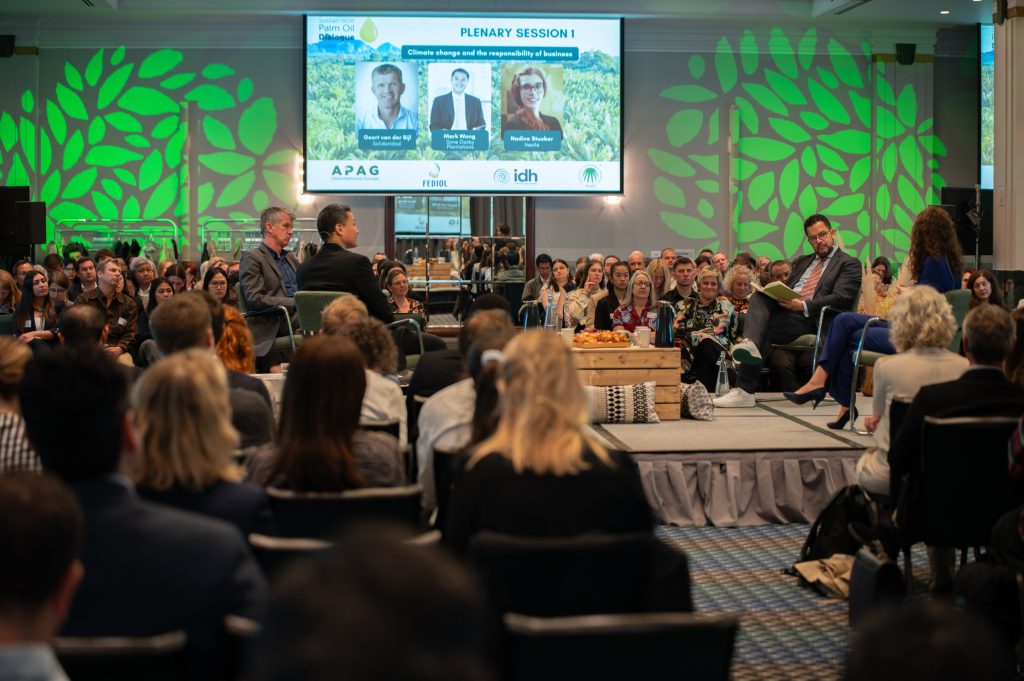
SPOD 2024 was the eleventh event in Europe of its kind. Since the RSPO formation 20 years ago, many other voluntary initiatives, including a palm oil collaboration working group on deforestation-free supply chains, traceability to plantation level, and satellite monitoring have steered the practical elements of what the European Commission intends to achieve with the EUDR.
Astrid Ladefoged, Head of Unit for Planetary Common Goods, Universal Values and Environmental Security at DG Environment of the European Commission, acknowledging the willingness and efforts of the private sector said, “we need to continue to work with the front-runners and help the rest catch up to such standards” Talking about the remaining challenges until implementation, she recognised that there have been efforts from the private sector to improve traceability and although there is still a lot to be done, implementation by the set timeline seems feasible.
Remarks from the private sector, however, raise concerns about the risk of excluding stakeholders, such as smallholders who, in many cases, have adopted the right practices but are less able to demonstrate compliance due to administrative barriers. Ladefoged stressed, “Due diligence is not an exercise where you can tick off points on a list.” Companies may have their own approaches to ensure that they are sourcing from a sustainable producer. The EUDR guidelines due to be published before the summer 2024, should help companies know what to do for the implementation.
This could for instance include making use of voluntary certification schemes in their risk assessment process.
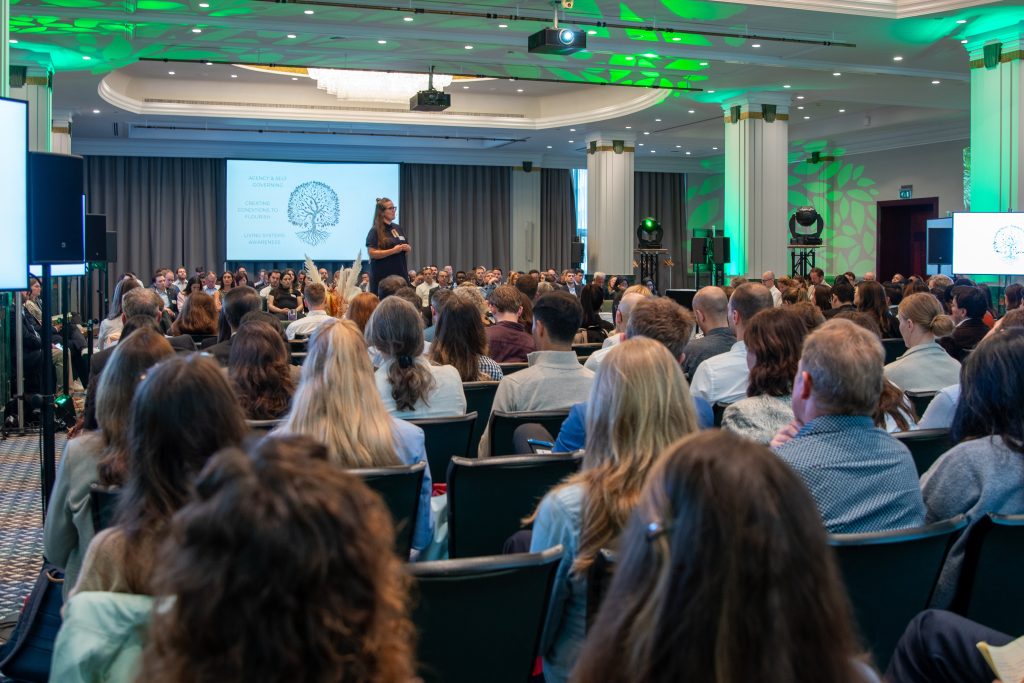
SPOD 2024 underscored the importance of innovative voluntary measures, such as public-private initiatives, certification and sourcing policies, and legislation to effectively contribute to halting deforestation, reducing emissions and more measurable sustainability impacts. The dialogue emphasised inclusivity, stressing the importance of respecting the needs and perspectives of all stakeholders, particularly marginalised smallholder farmers. The discussion also highlighted the need to balance voluntary initiatives and legislation to drive meaningful change. As the EUDR guidelines are anticipated later this year, the event brought constructive dialogue to the ongoing cooperation still needed between the private sector and regulatory bodies to achieve a sustainable palm oil industry.
About SPOD:
The Sustainable Palm Oil Dialogue (SPOD) Europe is an annual event that brings together industry leaders, policymakers, NGOs, and other stakeholders to discuss and drive sustainable practices in the palm oil sector. SPOD aims to foster collaboration and innovation to promote environmental and social responsibility in the palm oil supply chain.
For more information, kindly contact the organisers:
APAG – Sofia Ferreira Serafim, Manager at [email protected]
FEDIOL – Nathalie Lecocq, Director General at: [email protected]
IDH – Tran Quynh Chi, Regional Director Asia Landscape at: [email protected]
RSPO – Kimasha Williams, Communications Manager Europe at: [email protected]
Keep reading
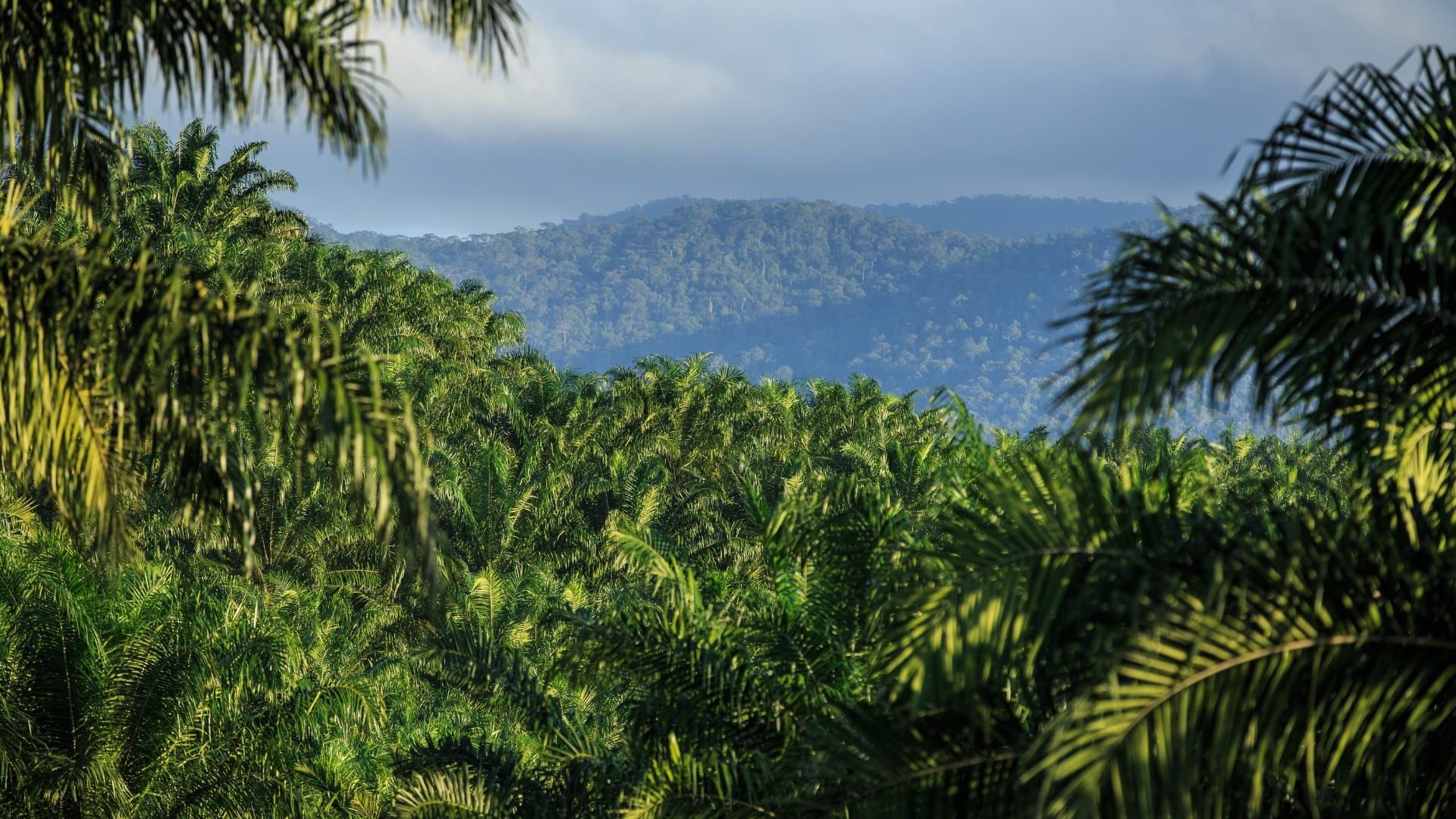
RSPO x JaSPON Conference and Member Engagement Forum 2025 Spotlights Japan’s Sustainability Success and Market Growth
Call for Expression of Interest: Independent Investigation of a Complaint
Call for Expression of Interest: Mexico National Interpretation Task Force for 2024 RSPO Principles and Criteria (RSPO P&C) and Independent Smallholder (ISH) Standard
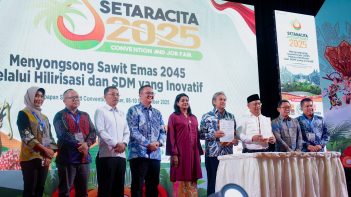
RSPO–APKASINDO Partnership to Boost Inclusive Growth, Certification, and Market Access for Oil Palm Smallholders

Open Letter to COP30 President: Integrating Forests and Biodiversity: A Policy Central to Paris Agreement Success
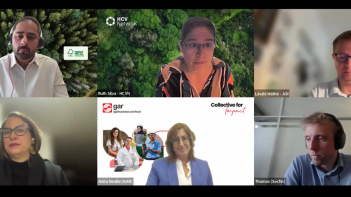
Bridging the Auditing Divide: Key Takeaways from the RSPO Assurance Forum 11
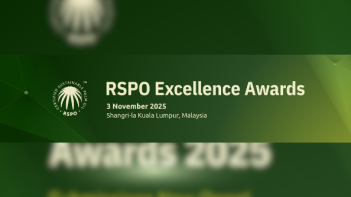
Extension of RSPO Excellence Awards 2025 Submission Deadline!
